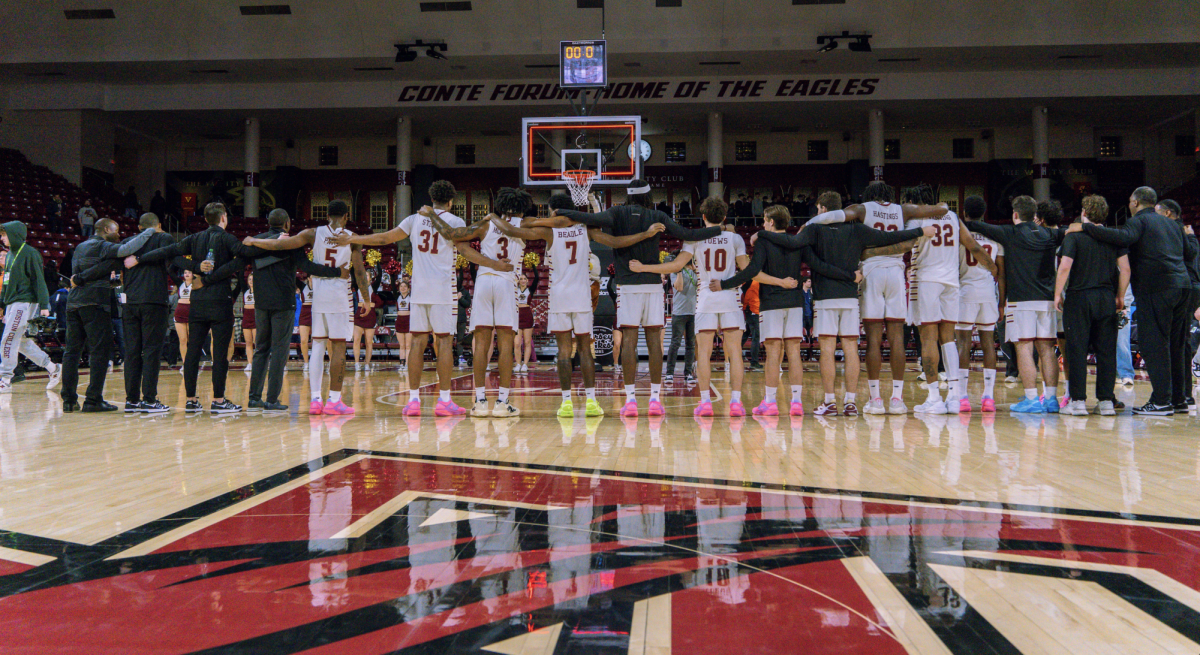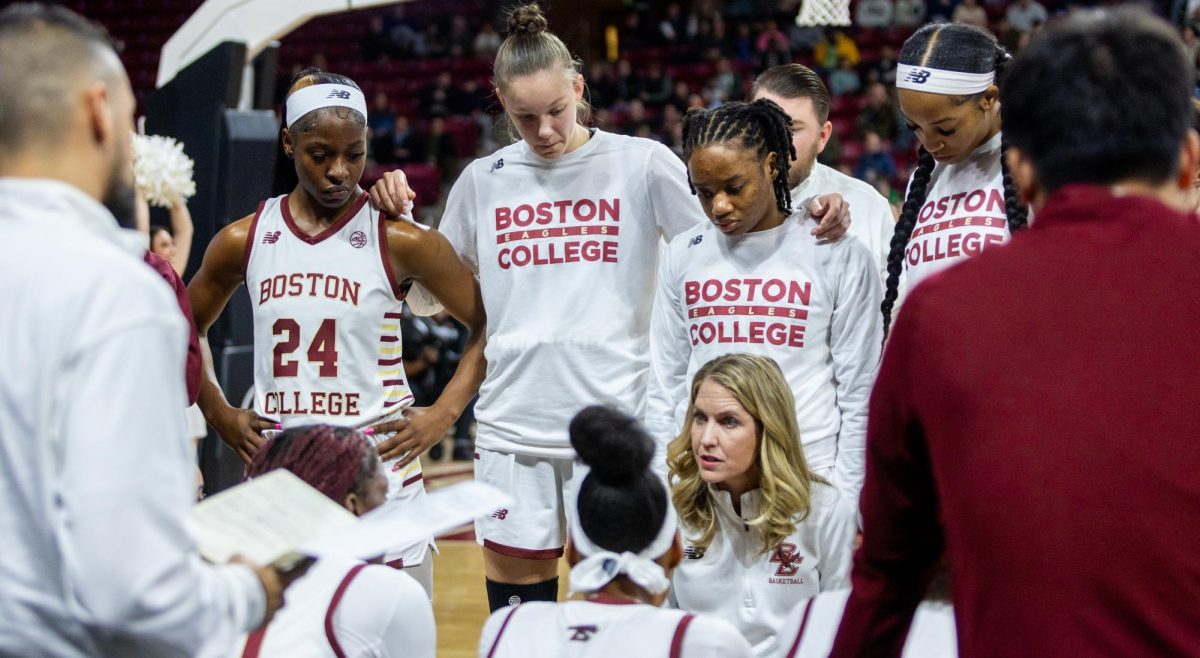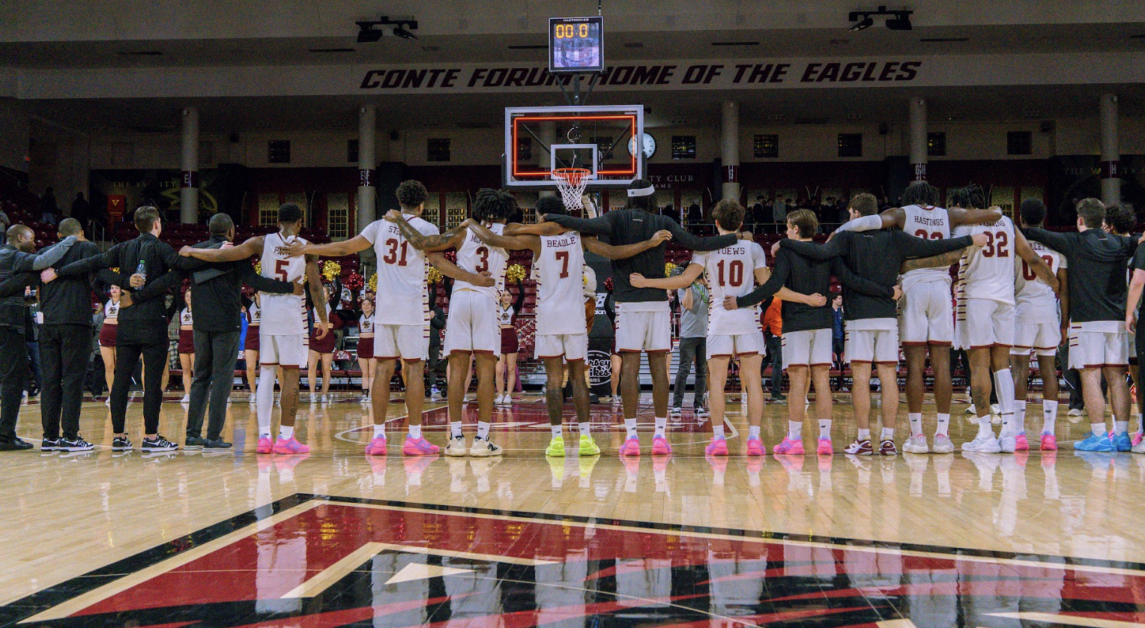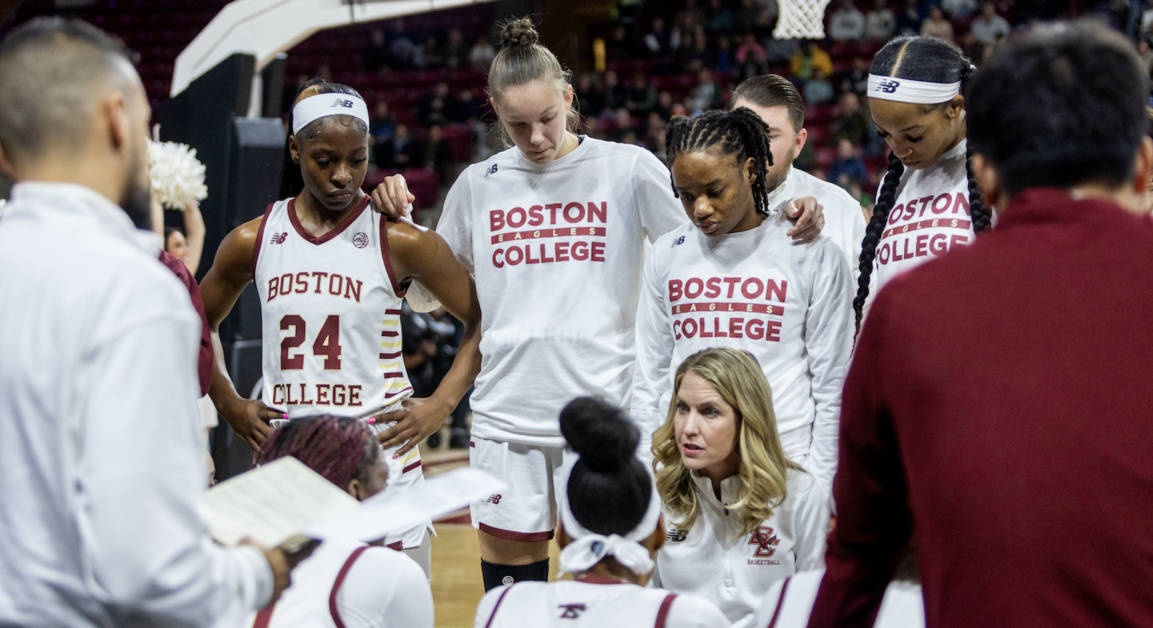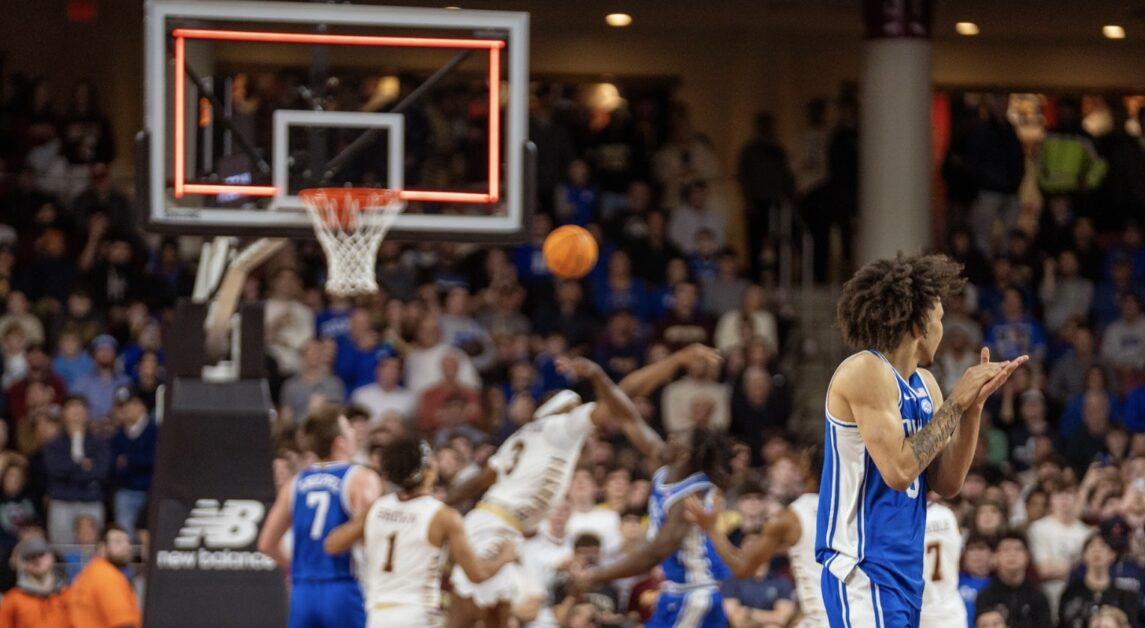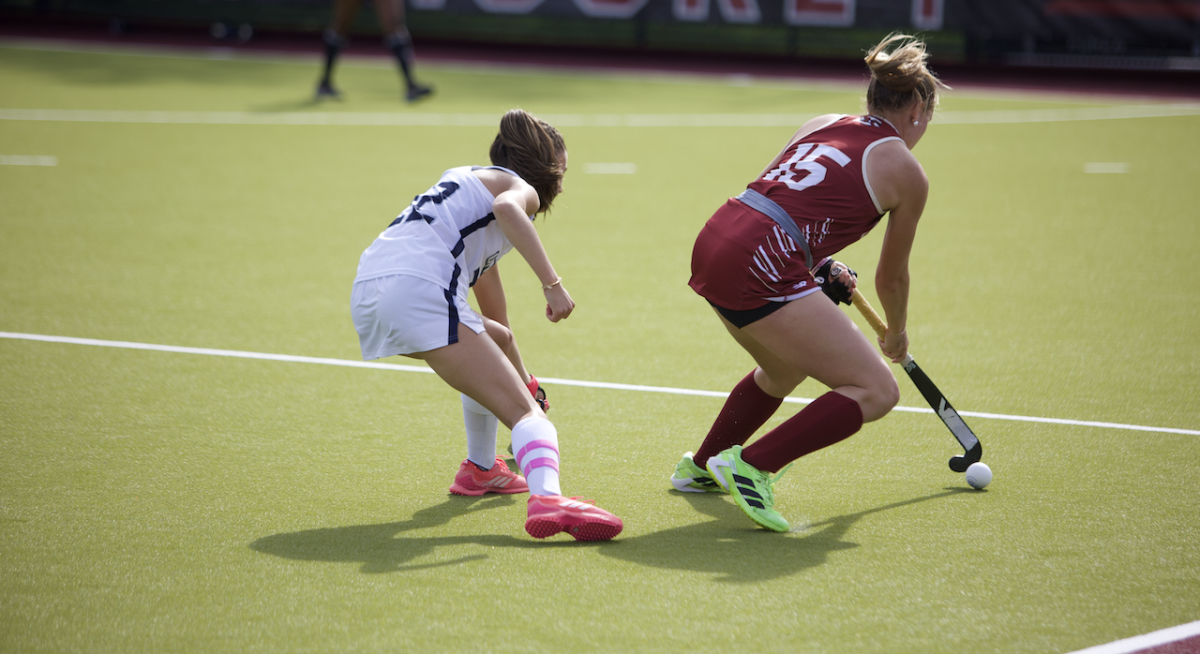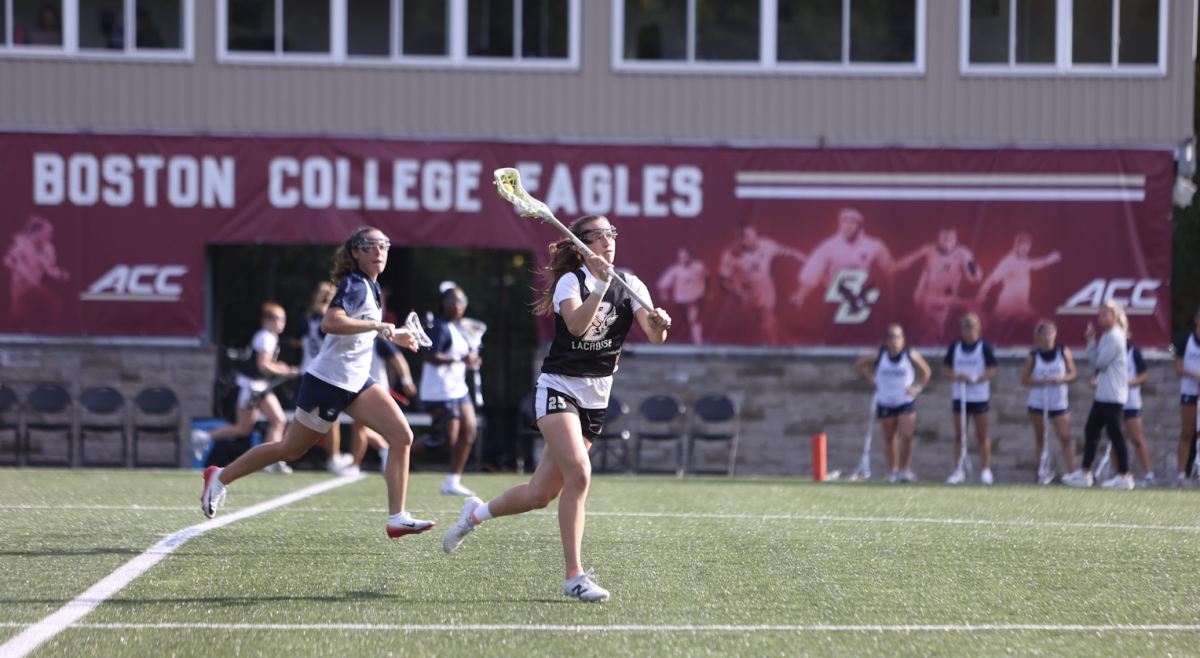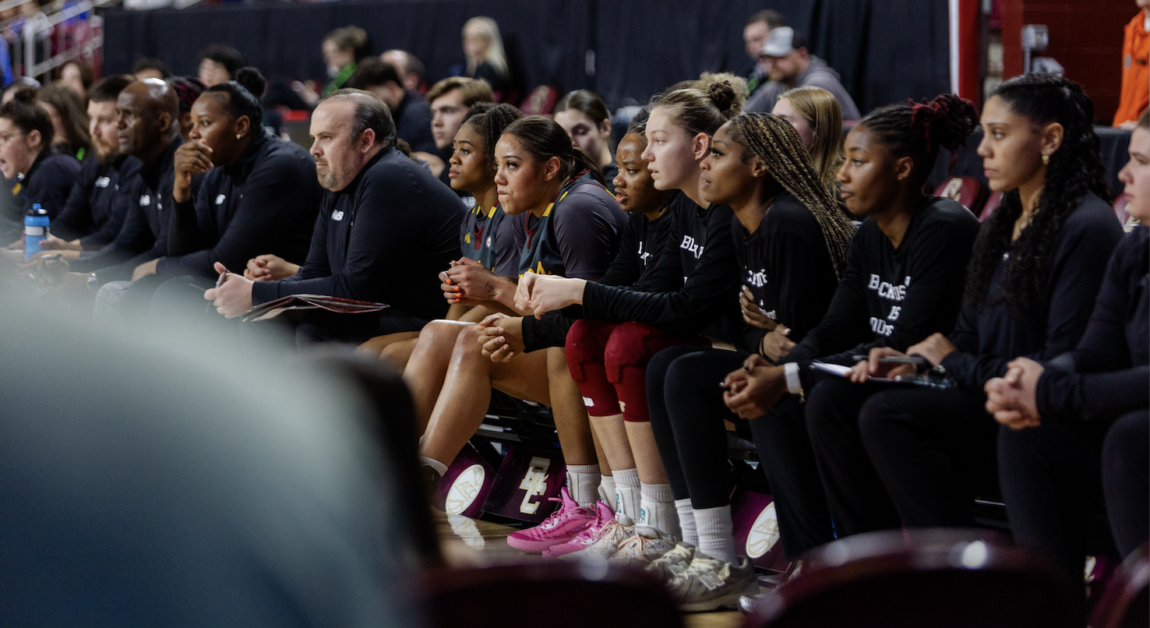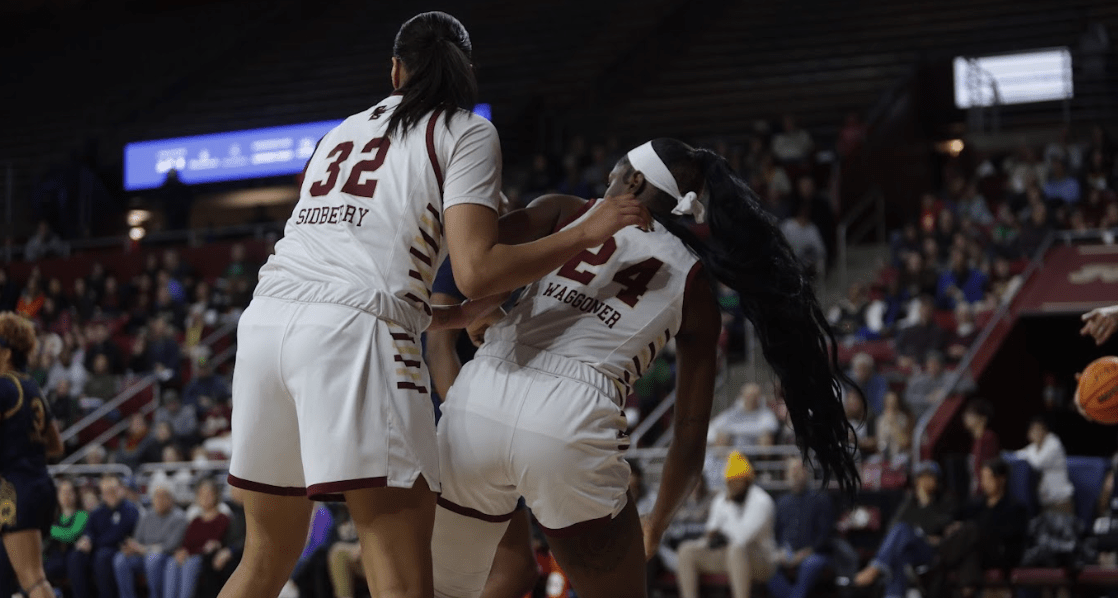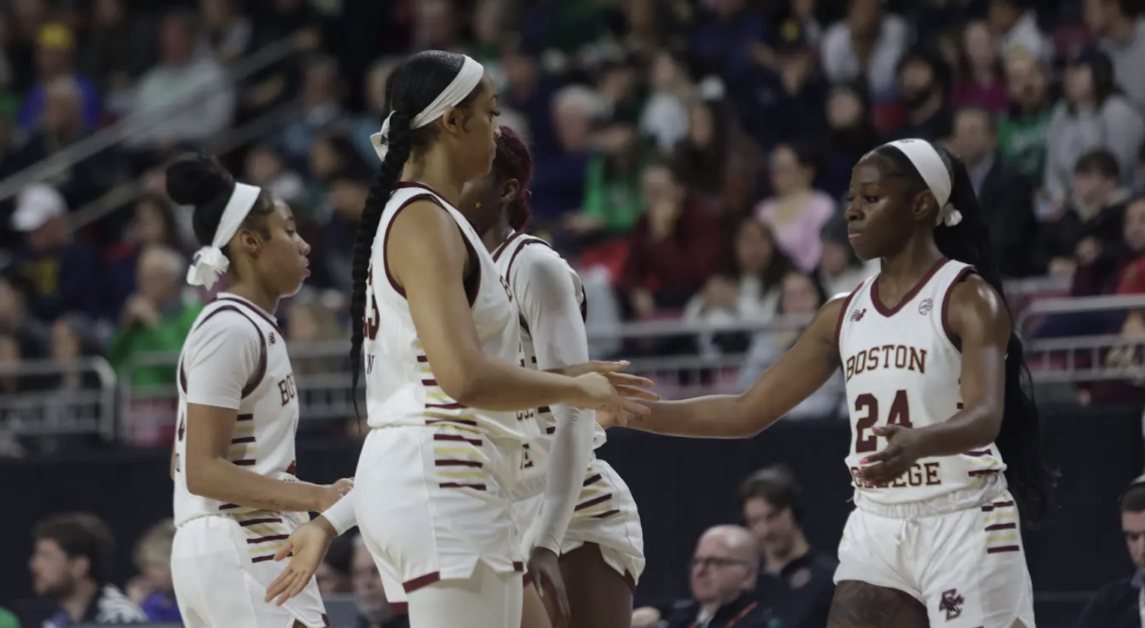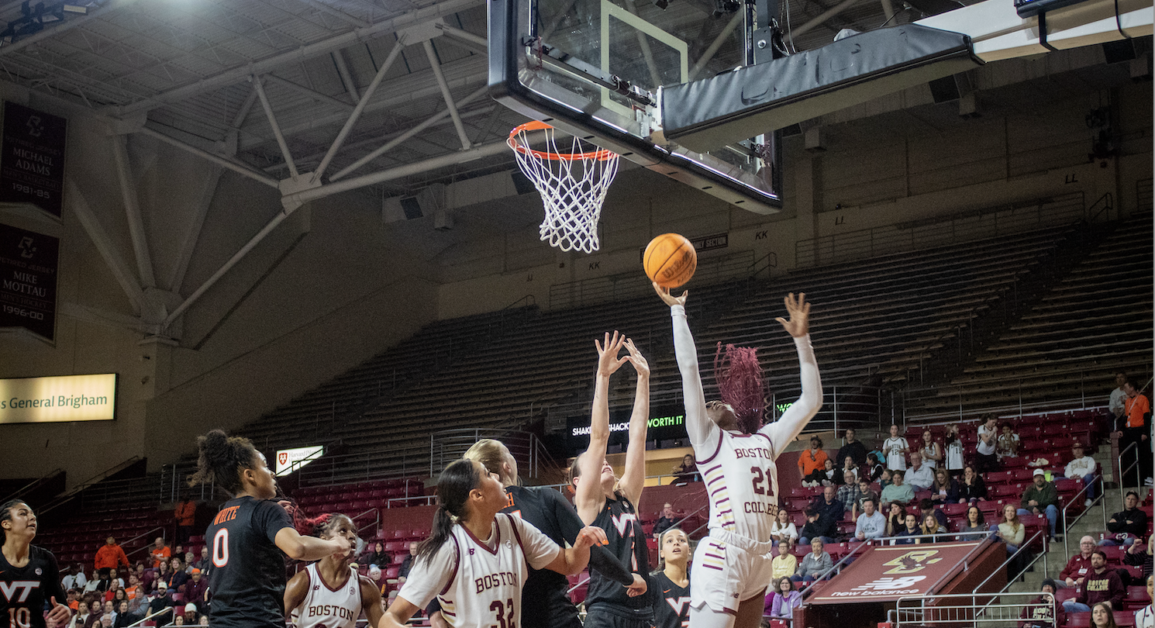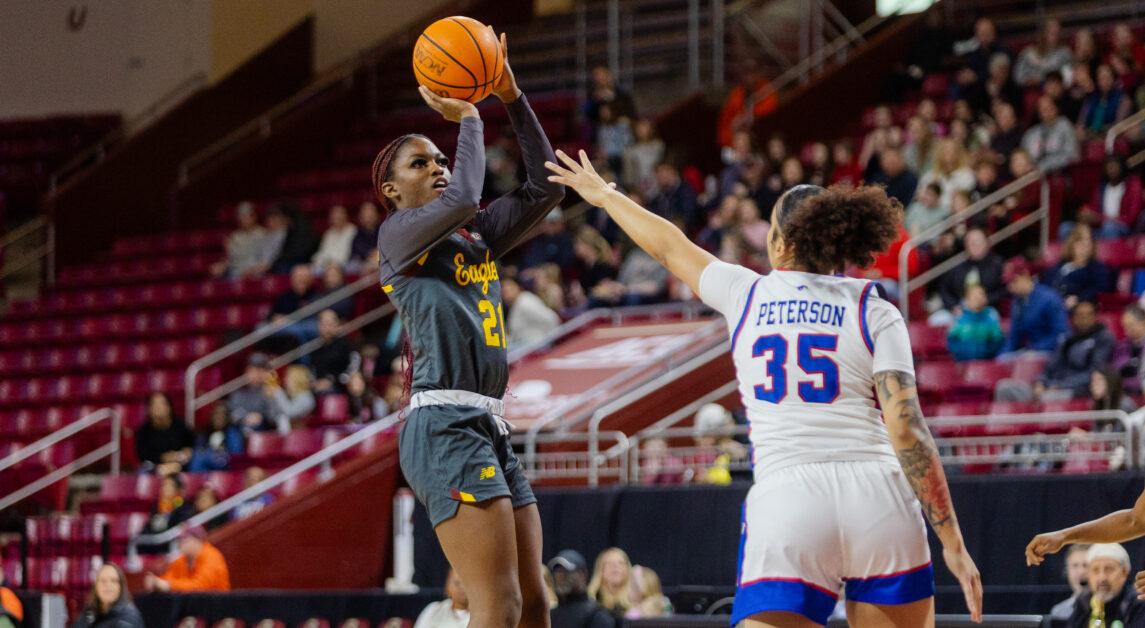For the first four games of its season, Boston College women’s basketball was unstoppable. It faced a number of different game styles—offensive shootout, defense-heavy, and runaway victory—and came away with a de facto crown over the rest of New England.
But one type of game that the Eagles had yet to face this season was a blowout that didn’t fall in their favor. As the Eagles stepped away from non-conference, New England-centered play, they were faced with the harsh reality that is ACC women’s basketball. BC, projected to finish in the middle of the conference pack, will face plenty of tough competition this year, and it started with Georgia Tech on Wednesday.
After an undefeated start through four games, the Eagles (4-1, 0-1 Atlantic Coast) dropped their first game of the season at the hands of the Yellow Jackets (3-1, 1-0), falling 68-86 in Atlanta.
BC’s 68 points was the second-fewest it had tallied this season—the first being 58 in the defensive battle with Providence—and Georgia Tech’s 86 was the most the Eagles have allowed, including an overtime contest with UMass in which the Minutewomen only notched 82.
“We came out pretty sleepy and looked like we weren’t ready to play and not [with] the intensity that we needed, which allowed them to get hot,” said BC head coach Joanna Bernabei-McNamee in a statement following the game.
For the most part, the Yellow Jackets’ high final tally was not a result of a lack of effort from BC’s defense, but instead from lights-out shooting both from the field and from the free-throw line. Through the first half, the Yellow Jackets hit 60.6 percent of their shots from the field, including 50 percent from beyond the arc. By the end of the game, their field goal percentage had dropped to 51.7 percent, but BC’s 43.1 percent shooting paled in comparison.
BC made just five of its 18 shots from beyond the arc—including Taylor Soule’s first career 3-pointer—while Georgia Tech hit 41.7 percent of its shots from distance.
Lotta-Maj Lahtinen was the driving force behind the Yellow Jackets’ commanding offense, notching 27 points and seven rebounds. The second closest Georgia Tech scorer was Lorela Cubaj with 16.
When the Eagles’ shots did fall, however, they were a sight to behold. Soule’s 3-pointer midway through the fourth quarter made it look like she had been hitting triples in games for years, despite it being the first of her college career. It was indeed beautiful, hitting nothing but net, but it brought the score to 51-81 when the game was already out of hand.
Soule finished the game with a team-leading 19 points, followed by Makayla Dickens with 16 and Cameron Swartz with 14.
Though the Eagles were down 74-45 heading into the final break, the fourth quarter was when BC really came alive. They scored 23 points in the final period and held Georgia Tech to just 12, the lowest single-quarter total for the Yellow Jackets all game.
“In the fourth quarter, I think you saw the team that we are and the team that we’re going to need to be consistently to win ACC games,” Bernabei-McNamee said. “Hopefully we can build off that fourth quarter and come back in the next game and look a little bit sharper.”
The storyline of the season so far has been the emergence of BC’s players who had formerly served a backup role, and against Georgia Tech, the pattern was no different. Clara Ford tallied nine points and a crucial six rebounds, Jaelyn Batts grabbed four boards, and Akunna Konkwo scored six points off the bench. Freshman Kaylah Ivey, after notching a game-high 23 points against UMass Lowell, added six assists.
With the 3-point game faltering as it did, the Eagles found much more success in the paint, including a powerful and-one play from Ford in the third quarter.
BC notched 30 of its 68 points in the paint, with 16 in the first half and 14 in the second half.
With a full ACC slate still ahead of it, BC has plenty of time to adjust to the demands of Power Five play. Bernabei-McNamee and her squad know what winning feels like, but getting back to that feeling won’t be a walk in the park.
Featured Image by Maggie DiPatri / Heights Editor


